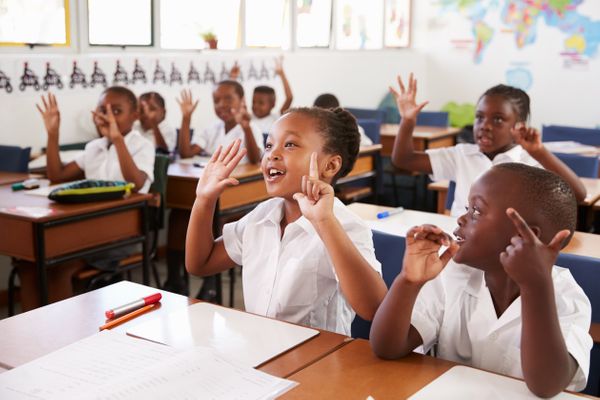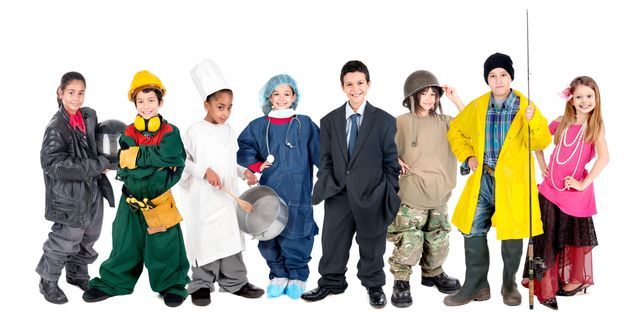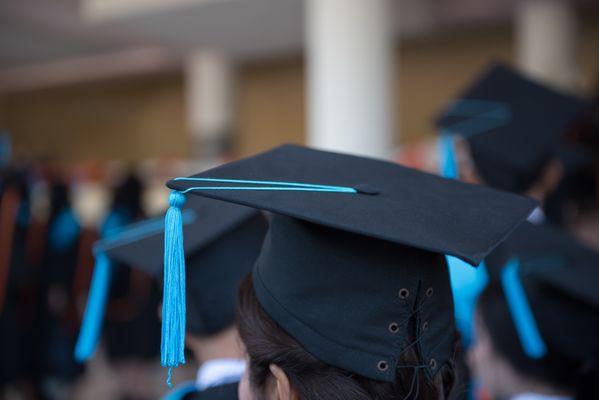2.1.2
Functionalist Theories
Functionalist Theories on the Education System
Functionalist Theories on the Education System
Functionalists believe that education equips people to perform different functional roles in society.


Durkheim
Durkheim
- Beginning in preschool and kindergarten, students are taught to practice different societal roles.
- The French sociologist Émile Durkheim (1858–1917) said schools are “socialisation agencies that teach children how to get along with others and prepare them for adult economic roles” (Durkheim 1898).


Secondary functions
Secondary functions
- Secondary functions are unintended functions.
- You learn lots at school outside of your formal education.
- For example, you might notice a student you find attractive in your class that you fancy. Speaking to that student and building a relationship with them teaches you the principles of courting.


Secondary functions cont.
Secondary functions cont.
- The educational setting introduces students to social networks that might last for years and can help people find jobs after they finish school.
- Another skill you learn is the ability to work with others in small groups. This skill is transferable to a workplace and that might not be learned in a homeschool setting.


Allocation function
Allocation function
- Another role of schools is to sort or classify students based on academic merit or potential.
- Schools identify the most capable students through testing and classroom achievements. The most capable students are allocated to the most important or challenging jobs (allocation function).
- Functionalists think this is fair because they think education is a meritocracy. A meritocracy is where everyone has equal opportunity and personal effort or merit determines social standing.
Criticisms of Functionalist Theories of Education
Criticisms of Functionalist Theories of Education
Functionalism suggests that education benefits society as a whole, but Marxists believe that education only benefits the ruling classes, while feminism sees education as only benefiting men.


Determining values
Determining values
- Functionalists, including Durkheim and Parsons argue that education promotes the norms and values of society as a whole.
- Marxists claim that education only promotes the values of powerful groups.


Hargreaves
Hargreaves
- David Hargreaves (1982) argues that education promotes competition and individualism and not shared values.


Divisions
Divisions
- According to Durkheim, education promotes social solidarity. However, education can also be divisive because of the hierarchy of schools and universities, which can separate social classes.


Other factors
Other factors
- Functionalism argues that educational achievement is based on merit (meritocracy), yet research indicates that factors such as class, gender, and ethnicity also influence achievement.


True meritocracy?
True meritocracy?
- Functionalists Davis and Moore argue that education selects the most appropriate people to do particular jobs, yet other factors aside from qualifications, such as social contacts (who you know) also influence the labour market.
1Theory & Methods
1.1Sociological Theories
1.2Sociological Methods
2Education with Methods in Context
2.1Role & Function of the Education System
2.2Educational Achievement
2.3Relationships & Processes Within Schools
3Option 1: Culture & Identity
3.1Conceptions of Culture
3.2Identity & Socialisation
3.3Social Identity
3.4Production, Consumption & Globalisation
4Option 1: Families & Households
4.1Families & Households
4.2Changing Patterns
4.3The Symmetrical Family
4.4Children & Childhood
5Option 1: Health
5.1Social Constructions
5.2Social Distribution of Healthcare
5.3Provision & Access to Healthcare
5.4Mental Health
6Option 1: Work, Poverty & Welfare
6.1Poverty & Wealth
7Option 2: Beliefs in Society
7.1Ideology, Science & Religion
7.2Religious Movements
7.3Society & Religion
8Option 2: Global Development
8.1Development, Underdevelopment & Global Inequality
8.2Globalisation & Global Organisations
8.3Aid, Trade, Industrialisation, Urbanisation
9Option 2: The Media
9.1Contemporary Media
9.2Media Representations
10Crime & Deviance
10.1Crime & Society
10.2Social Distribution of Crime
Jump to other topics
1Theory & Methods
1.1Sociological Theories
1.2Sociological Methods
2Education with Methods in Context
2.1Role & Function of the Education System
2.2Educational Achievement
2.3Relationships & Processes Within Schools
3Option 1: Culture & Identity
3.1Conceptions of Culture
3.2Identity & Socialisation
3.3Social Identity
3.4Production, Consumption & Globalisation
4Option 1: Families & Households
4.1Families & Households
4.2Changing Patterns
4.3The Symmetrical Family
4.4Children & Childhood
5Option 1: Health
5.1Social Constructions
5.2Social Distribution of Healthcare
5.3Provision & Access to Healthcare
5.4Mental Health
6Option 1: Work, Poverty & Welfare
6.1Poverty & Wealth
7Option 2: Beliefs in Society
7.1Ideology, Science & Religion
7.2Religious Movements
7.3Society & Religion
8Option 2: Global Development
8.1Development, Underdevelopment & Global Inequality
8.2Globalisation & Global Organisations
8.3Aid, Trade, Industrialisation, Urbanisation
9Option 2: The Media
9.1Contemporary Media
9.2Media Representations
10Crime & Deviance
10.1Crime & Society
10.2Social Distribution of Crime
Unlock your full potential with Seneca Premium
Unlimited access to 10,000+ open-ended exam questions
Mini-mock exams based on your study history
Unlock 800+ premium courses & e-books

